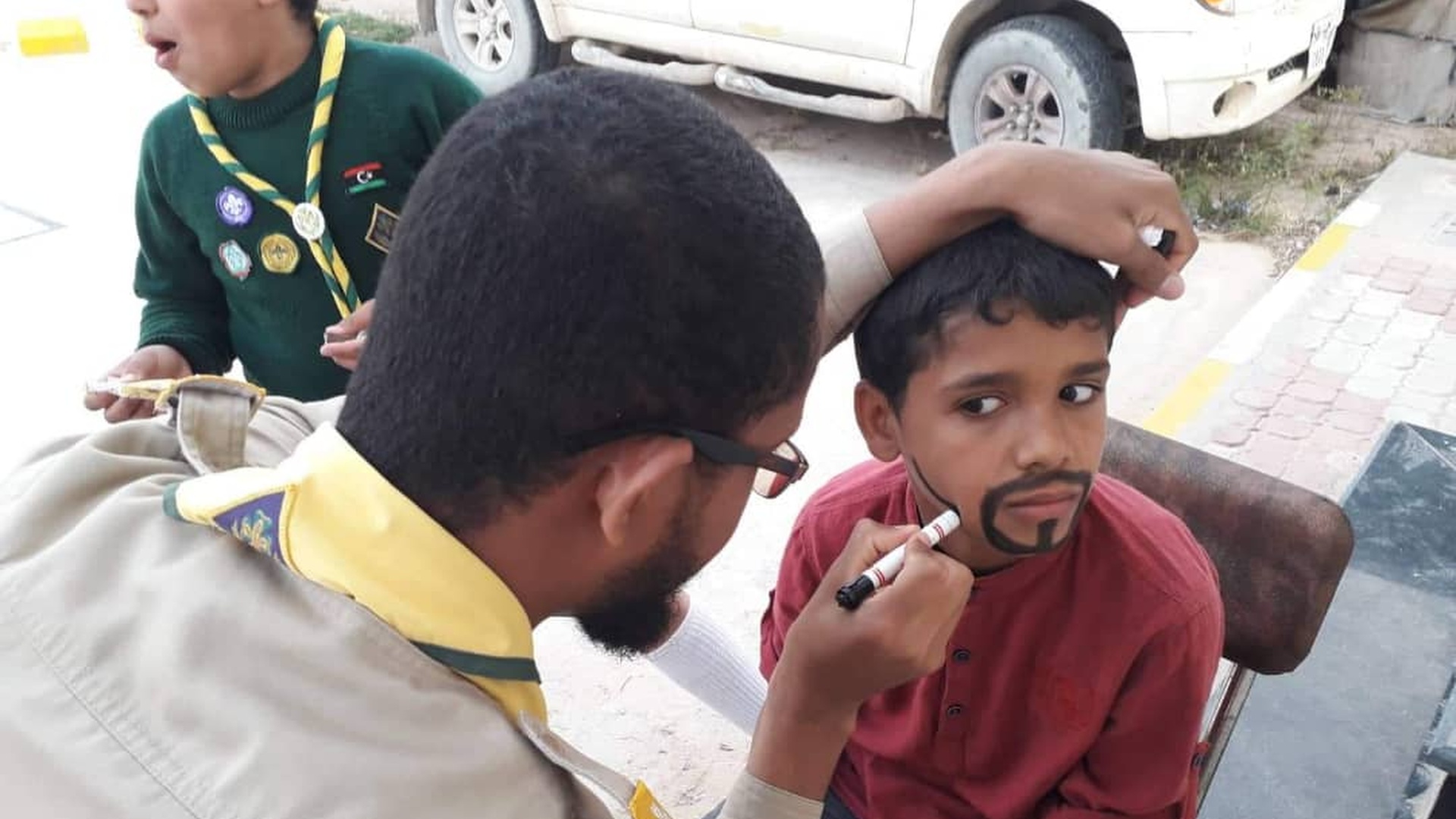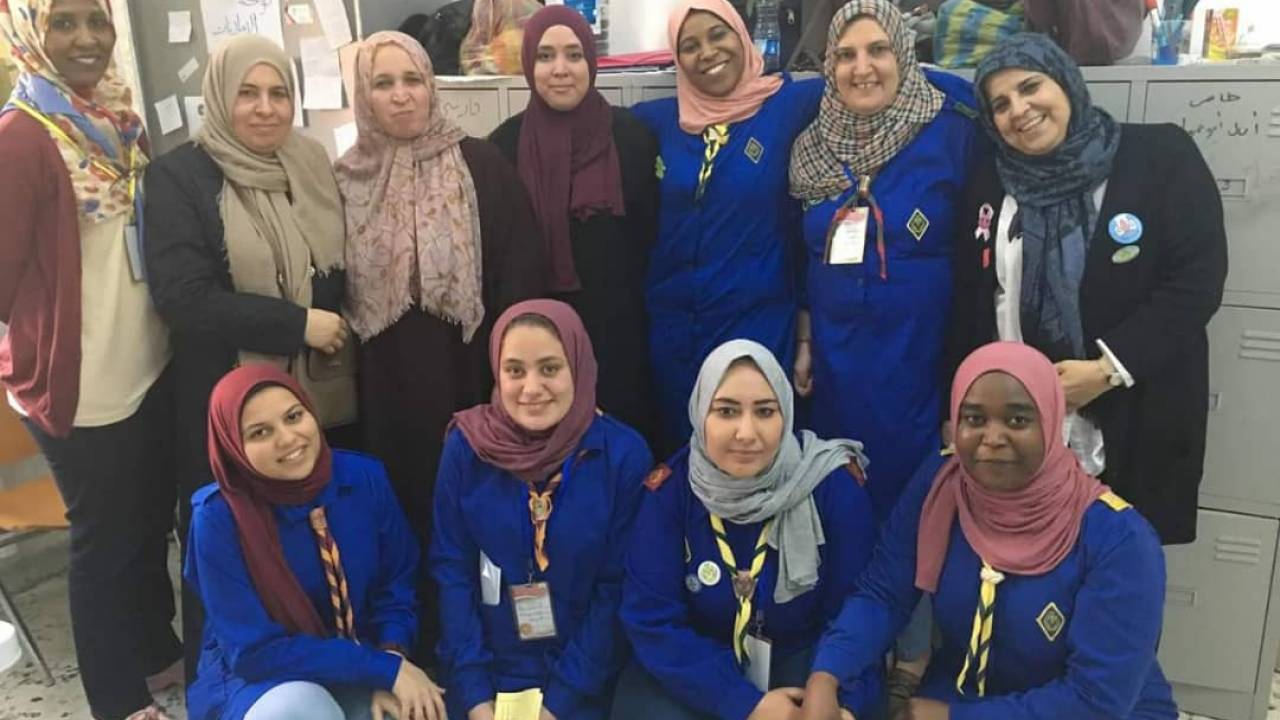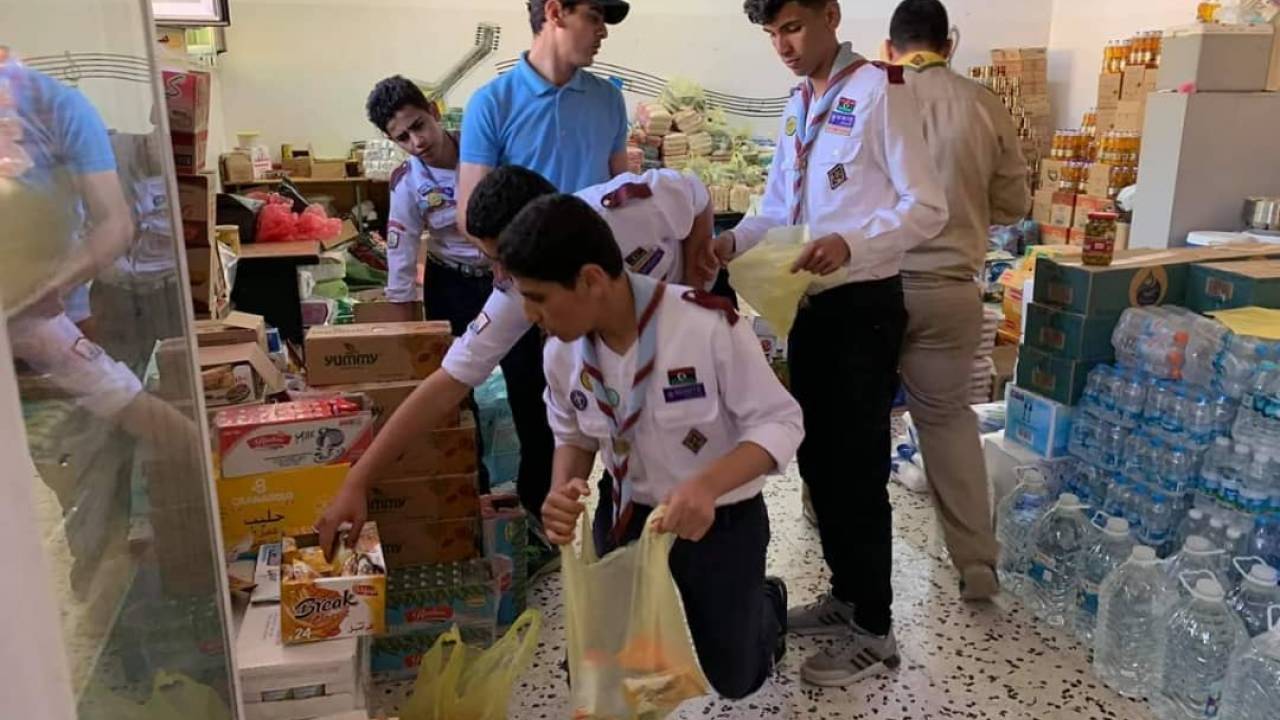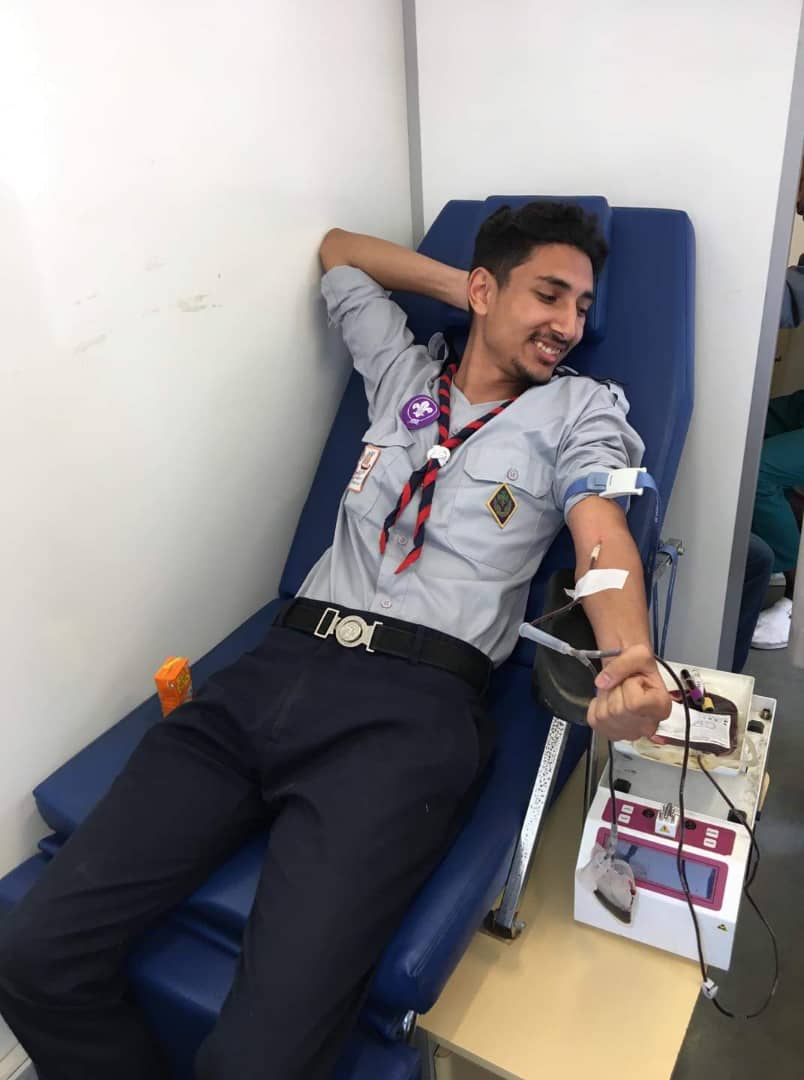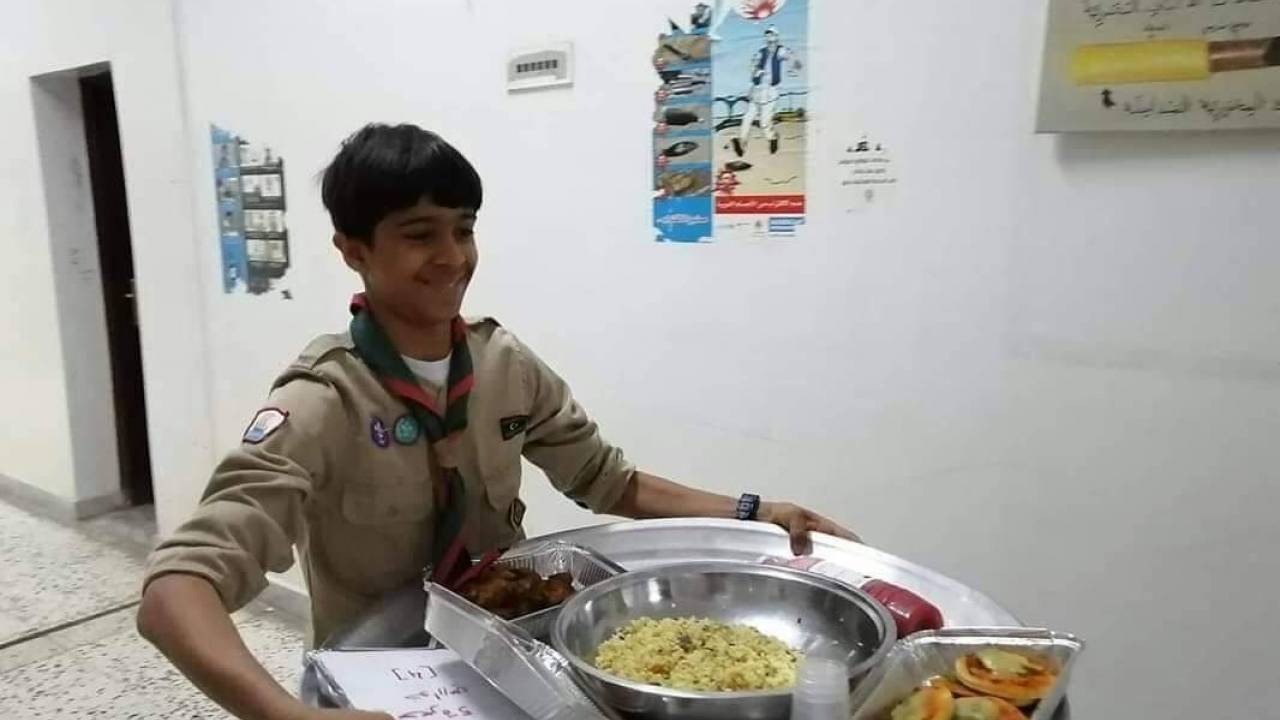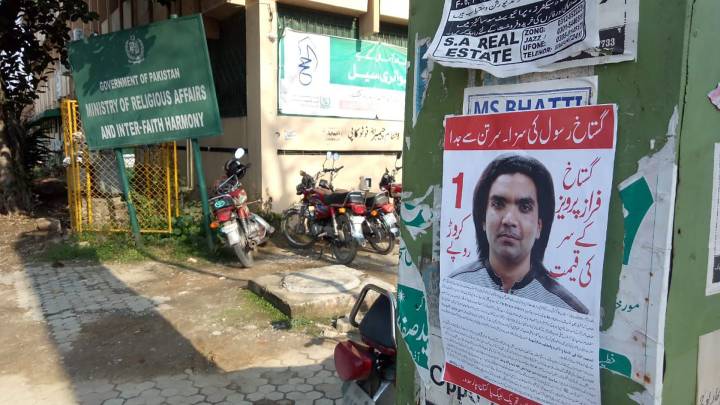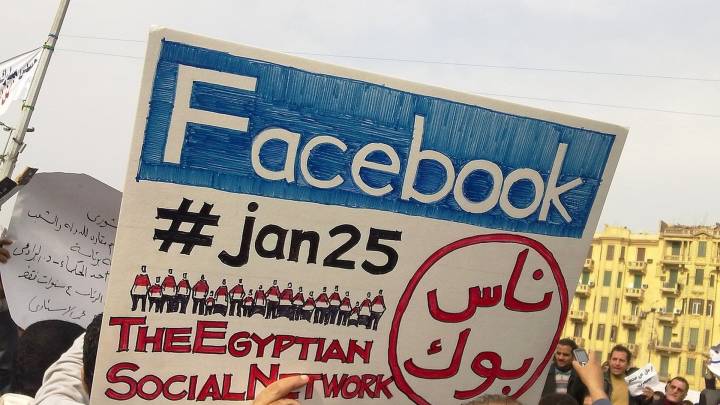They even defied Gadhafi to establish one of the most long-standing institutions of Libyan civil society. Now, with the civil battle for the capital ravaging the country, the Scouts movement’s help is needed once more.
In April of this year, Field Marshall Khalifa Haftar launched his attack upon Tripoli. What had been billed as a short and effective campaign still grinds remorselessly on. The campaign to take Tripoli is reported to have claimed over 1,000 lives, with a further 120,000 people displaced.
For the more affluent of those living on Tripoli’s frontline, displacement can mean a prolonged stay abroad, most likely in neighboring Tunisia, a country many are already familiar with. However, for the poor and the overlooked who live near areas engulfed by the conflict, displacement can mean a hasty move from the threat of fighting to the repurposed schools of the capital, where Libya’s Scouts do the best they can to meet the wildly different and often challenging needs of the dislocated and the adrift.
It’s 1 am in the Ben Ashour district of Tripoli and cars are coming in laden with the supplies the school needs for the families bused here by the Red Crescent. They carry what they can, blankets, household goods, food, nearly all donated by local households and businesses, many known personally to the scouts in Ben Ashour.
Outside, scouts greet them, many already known to their nighttime benefactors. Given the hour, most of the younger scouts have gone home, leaving the overnight work to the older troop leaders.
Travelling from the frontlines to the relative safety of Ben Ashour can be a dislocating experience. “The families are often quite disorientated when they arrive. They don’t know what to expect, or how long they might be here,” Ahmed Ghedan, a senior scout said. “We do what we can to help them settle and establish themselves. You have to be very sensitive.”
“The children can be pretty shaken,” he continued, over the swirl of another late-night delivery, “so we need to take extra care of them. We try to devise activities that they can do, like volleyball, which also gives the parents a break.” Time, critically, that they can use to build something resembling a home within the school’s utilitarian corridors. All the while, Tripoli’s scouts and cubs, clad as often as not with the uniforms they share with their fellows the world over, do their best to occupy the children at times of near impossible strain.
The Scouts have a long and established history within Libya. Founded in 1954, the movement has grown to encompass some 18,000 young men and women. Remaining firmly apolitical through monarchies, dictatorships and post-revolutionary chaos, Libya’s scouts have maintained a steady path that offers a secure space for Libya’s young men and women to come together in the face of bitter regional conflicts and rivalries to talk and practice the basic skills of scouting.
“We organized a major jamboree near Benghazi last year,” Aiman Warfali, a senior member of the scouting organization said from Ben Ashour. “We had hundreds of young scouts, boys and girls, from all over Libya. It was good. Everyone just worked together.”
From the devastating 1963 earthquake that killed somewhere between 290 and 375 people, through the turmoil of the country’s 2011 revolution to the desperate conditions of flood that ravaged the ancient city of Ghat earlier this year and on to the chaos of the current offensive on Tripoli, Libya’s scouts have always been at the spear tip of relief efforts.
That role was never more vital than during the country’s 2011 revolution, when Scouts were active across the country, doing everything from digging graves, to delivering vital food and first aid to families trapped by the fighting.
“The principal is to assist people, wherever they’re from and regardless of the political situation,” Waefali said. “That’s one of the main reasons people always accept the Scouts’ help. Everyone respects their neutrality.”
That Libya’s Scouts still adhere to the principles of their founder, Robert Baden-Powell’s turn-of-the-century handbook, ‘Scouting for Boys’, seems incongruous against the background of drone warfare and internecine conflict. However, maintaining that independence hasn’t always been straightforward. The scouts were able to withstand Gadhafi’s purge of independent groups, aided, perhaps not least, by Gadhafi’s own youthful membership of the organization in Sabha, in southwest Libya.
It wasn’t always so straightforward. Outside a Tunis café, Ali El Goula from Tripoli, the National Scout Organization’s International Commissioner, recounts how in 1984 Gadhafi attempted to move against the scouts, limiting their freedoms, before subsequently establishing his own rival organization, “but people didn’t like it in Libya. Most Libyans didn’t attend. They gave them lots of offers, lots of money, but for nothing, they could do very little. But the scouts, with very little money, could do lots of things. He never touched us again.”
El Goula goes on to describe how scouts bring people together, fostering an emphasis on self-reliance, as well as the community of the camp where life lessons can be taught free from the confines of a classroom’s walls. “It is in this time at the camp that we teach them these skills, a feeling of duty, (build a sense of) nationality and to serve their community and country,” he says.
For Ali, there is little remarkable in the efforts of Libya’s Scouts, explaining that all scouts, anywhere in the world, would do the same. Ultimately, it’s what makes them Scouts.
“In this war, in the 2011 revolution, the first people on the scene were the Scouts. Why? Because we receive the people, we help them from the first day,” he explains, stressing the trust that people feel ready to place in their relatively young members.
More bombs will likely land on Tripoli’s frontline tonight, wrecking homes and displacing still more people. However, within the chaos and the confusion will be the Scouts, doing their good deeds for the day.

